Have you ever dismissed something as probably just the “placebo effect?”
It’s only relatively recently that my understanding of the placebo effect has shifted from “oh it’s probably just the placebo effect, let’s keep searching for the real thing” to actively and deliberately seeking out and enhancing the placebo effect as a legitimate and profound tool for change in its own right.
I went from science is golden and all the answers are to be found “out there” and the proof we’re looking for is to be found in a systematic review of numerous randomised controlled trials (RCTs) showing a definitive and statistically significant conclusion to appreciating that our internal resources and abilities to alter our experiences including healing are equally as real and golden. The placebo effect is science, not magic.
Now, I happily employ a healthy mix of both outside knowledge and inside resources because they were always meant to be used in combination. In combination they are far more powerful than any one used on its own.
What Was the Catalyst for My Mindshift?
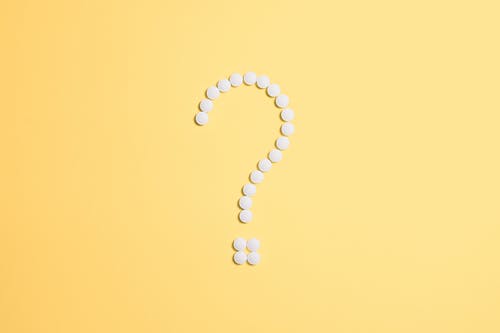
Why did I go from thinking of the placebo effect as something which was dismissible to coming around to appreciating it as a useful tool for change? Most likely because I had the experience of hypnotherapy transforming my entire life experience in the most profound way you can imagine. You can argue with or find limitations and exceptions when it comes to anyone else’s story and even studies, but you can’t argue with your own experience.
I know that had I not given hypnosis a (very cynical) try and persisted with it even when I didn’t think it was “working” the most likely scenario is that I would still be sick with anorexia nervosa. Either that or dead because until hypnotherapy entered my life there truly hadn’t been any alternatives for my future.
What really solidified my newfound reverence for the placebo effect as a logical and effective tool for life change was when it clicked that people get better from multiple illnesses in multiple different ways. That there’s rarely a one size fits all approach to health and wellbeing (Being a dietitian I know this better than anyone).
Some people recover from the very same illness through surgery, drugs, psychotherapy, altering their diet, doing “nothing” or a whole list of other things. What does this tell us?
It tells us it’s not the treatment itself or it is in part the treatment but there’s more to the story than the treatment. I believe this is a demonstration that there is an inherent ability within human beings to direct our internal resources towards healing.
Why is it so hard to create a hard and fast treatment we can deliver which will guarantee cure 100% of the time in each and every situation and for each and every person who receives it?
Because there’s more to why these things work, don’t work and everything in between than the therapeutic properties of the thing itself.
There’s the entirely unique one-of-a-kind human being receiving and implementing them.
Included within the myriad variables of how effective a treatment is is our mental state and our beliefs and expectations around what is possible and not possible. We know our expectations on what will or will not happen have a monumental impact on how successful that treatment will be.
What Is the Definition of the Placebo Effect?

The placebo effect is a positive change in a person’s “symptoms” (be these physical or mental) in response to undergoing a treatment (drugs, surgery, psychology etc) that is non-functional. That is a treatment which itself has no actual therapeutic characteristics. The explanation of the improvement in symptoms is that it is due to the person’s expectation or belief that the treatment is beneficial.
To me as I type this definition of a placebo where in the past, I’d have blown it off my mind now says woahhhh and the next question that comes to my mind is rather than discard this as non-useful how can we use this information?… because that information is information that should never be blown off. That information is monumentally useful.
Granted, it’s a little harder at first glance to utilise than simply looking for the compound, surgery, drug, food, tool that will cure but hard does not mean impossible. Hard does not mean beyond our abilities to utilise. We’ve made it this far as a species for one reason and that reason is that human beings are pretty resilient and resourceful.
Why I Care About Placebo
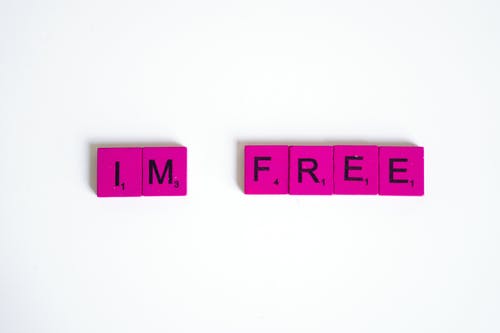
There’s a reason I decided to write about placebo today and it is a personal one. I have been reflecting lately on just what it was about my experience with clinical hypnotherapy that lead to my healing.
What was it that made it “work” for me and not other people?… I have had more than one smoker or anxiety client come to me and say they’ve tried hypnosis before with no “luck.” For myself I’ve actually come to the conclusion that I don’t care. I don’t mind what it was that made clinical hypnotherapy so effective for me because I’ll likely never be able to say for certain whether it was the hypnotherapy process itself and the tapping into the use of my unconscious mind (autonomic nervous system) and the scientific explanations of why this cures or simply my belief that hypnotherapy was helping or maybe even some mix of the two. At the end of the day, I got the outcome I wanted.
Far more than that initial change I gained responsibility and control over my mind.
Which meant that I got a life. Which means that I get a life. A very messy one with a lot of cleaning up to do from those years I wasn’t at the steering wheel of most of my thoughts and consequently actions but a chance at a messy life is incomparably phenomenal in comparison to a life that was never truly mine.
I truly believe hypnotherapy made that possible. I truly believe hypnotherapy made the life I live today possible. It was still hard to do, and the longer I work in this area the more I see the belief that hypnotherapy removes all barriers and makes it easy is a common misconception. Hypnosis doesn’t remove your responsibility. It makes your use of your responsibility possible. You still must put in effort, you still must do the hard things because that is what it means to be alive. Not having responsibility or effort in life is dead people goals. That’s not been my agenda for any of the clients I’ve worked with…
Why You Might Like to Care About Placebo
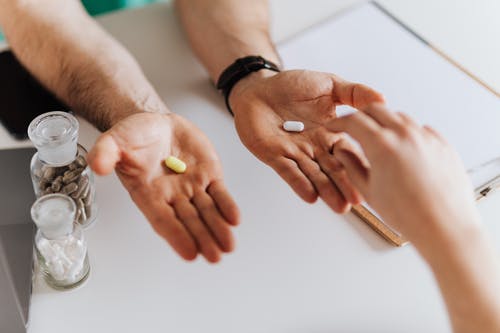
If you’re in the boat I was in of writing off the placebo effect as it being just “all in your mind” and too airy fairy I’d love to encourage you to take another look at just what “all in your mind” means. If the use of your mind can bring about huge changes in the physiological reactions, responses and health of our bodies then there’s nothing “just” about it. That’s incredible. Incredibly powerful and useful.
How could you use the power of placebo in your life?
3 Examples of Placebo at Work
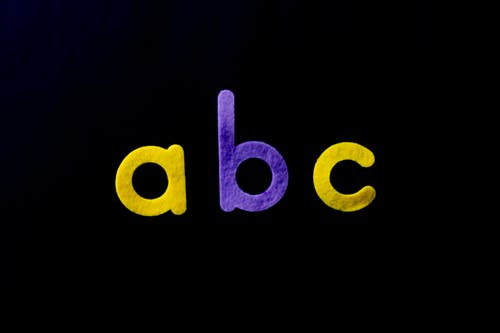
To give you an indication of just how impactful our mindsets are in influencing our physiological responses I’m going to summarise three experiments (and if you want more just have a Google of placebo, you’ll find many).
-
The Milkshake Experiment1
The Milkshake Experiment refers to a study in which volunteers (n=46) were asked to drink on two separate occasions a low-calorie milkshake and a high-calorie milkshake while having their levels of the hormone ghrelin measured. In a nutshell ghrelin is a hormone that goes up the hungrier we are and down the more fed and satiated we are.
The results were as expected. The milkshake which contained the higher number of calories caused a dramatically steeper decline in ghrelin whereas the low calorie milkshake caused a relatively flat ghrelin response.
Where this gets interesting is that the two milkshakes actually contained the same number of calories (they were the same milkshake).
Which means the volunteers satiety was equated with what they believed they were drinking versus the actual calorie amount.
What does this mean? Ghrelin levels may be psychologically regulated. Our mindset and beliefs about what we are eating meaningfully affects our physiological response to food because the only difference about the two situations were what people believed about what they were eating.
As someone who lived with and has now lived without anorexia nervosa I can tell you that when I read about this study I wasn’t surprised. I believe it gives part of an explanation to how I’m able to easily maintain my body weight today versus when I was sick. Part of the picture I truly believe is my mindset, my beliefs around food and eating. When I was sick, I believed that my metabolism was different. I believed I was different, and that gaining weight was very hard to impossible for me. I believed that I could eat anything, and it didn’t have an effect on my weight. Now I believe what I eat nourishes me and that my metabolism is normal. I can only speculate as to how those polar mindsets impacted and impact my hunger hormones and physiology… In very profound ways I imagine!
-
Exercise and The Placebo Effect2
In a study published in 2007 a group of 84 female room attendants were divided into two groups. One group was provided with education about the benefits of exercise and how their work cleaning hotels fit the Surgeon Generals recommendation for a healthy lifestyle. The other group was not given this information. Four weeks after the education (intervention) the educated group reported they were getting significantly more exercise than what they reported they were getting before the education and showed a decrease in weight, body fat, hip-to-waist ratio and body mass index. What’s important to note here is that behaviours during the study did not change, just mindset.
This experiment showed that mindset affects the degree to which we experience the beneficial effects of exercise. That is the beneficial effects of exercise are due in part or possibly as the researchers pointed out entirely to the placebo effect.
-
Antidepressants Vs Placebo3
For me to address the question of the efficacy of antidepressants would take an entire blog post, actually an entire book therefore I’m not going to go there now. Rather I want to touch on the findings of one study.
To set the scene it is well known that there is a strong therapeutic response to antidepressants and a response almost as strong to placebo. That is someone being given a pill they’re led to believe is an antidepressant medication is almost as effective as actually giving them antidepressant medication.
In this particular paper the authors compared different studies 1. Those where participants knew there was a placebo and a non-placebo group and 2. Those where there was no placebo group. What the authors of this paper found was that in the studies where there was no placebo group the therapeutic benefit of the antidepressants was more robust.
Why? They received the same antidepressants the only thing that changed was the participants mindset and expectation. In the studies where there was no placebo the participants were certain they were getting an antidepressant. They believed it was going to work versus the other group who weren’t sure if they were getting an antidepressant or a placebo and therefore if it was going to work or not. Another study points out the fact that in antidepressant studies the side effects of the medications are explained to participants which gives away whether or not they are taking the drug or placebo when people experience or don’t experience side effects4. In one study 89% of participants correctly guessed that they’d been given the antidepressant5 which means that even when an experiment is designed and delivered to be double blinded it is hard to make this reality.
I know this might sound strange and disheartening but it is the reality, we see it in our every day lives and I think what would be even more strange and disheartening would be to ignore this information. The placebo effect (aka the absolute power your mind has to influence your physiology) is so incredible and solid that it helps people decrease their symptoms of major depressive disorder. That is big useful news given the plethora of side effects that go along with antidepressant medications3.
Summary

The placebo effect describes how we can bring about positive changes in our lives both mentally and physically simply by believing that we can. Including if we think something outside of us gives us that ability such as a drug or therapy.
There are numerous studies that demonstrate clearly that the “power of the mind” is profound. It’s not even up for debate that placebo is a real and true phenomenon and a useful phenomenon at that.
The trickier part is knowing how to tap into and actually use this inherent ability we all have within us because we can tell ourselves something is going to be good for us but if we don’t truly believe it we’re unlikely to experience the full effects of our body mobilising those useful resources.
The best way I’ve personally found to help people tap into the healing most core of their being and direct their internal world and by doing so alter in profound ways their external experience is clinical hypnotherapy.
Why is hypnotherapy so effective? Because hypnosis is the ultimate state of enhanced focus, concentration and learning. When we focus and direct all our internal resources towards a problem it can often be solved remarkably quickly to the point where it can feel like magic. It’s not, it’s you and your tapping into wisdom within you that you don’t even know you have (no matter how intelligent and knowledgeable you already believe yourself to be I can guarantee you’ve got realms of greatness within you you’re unaware of and therefore most definitely not utilising).
So, what is the placebo effect really? Well, after reading this I hope you’ve come to appreciate that it is far more than something we should be dismissing as “all in your mind” and I hope that I’ve given you enough inspiration to excite you into believing it is something we should be tapping into and utilising. The placebo effect is your ability to alter your physiological processes in response to your thoughts. That’s incredible and as with all things the incredibleness of it is found in the use of it not in the knowing of it…
Whether you think you can or you think you can’t. You’re right . ~ Henry Ford
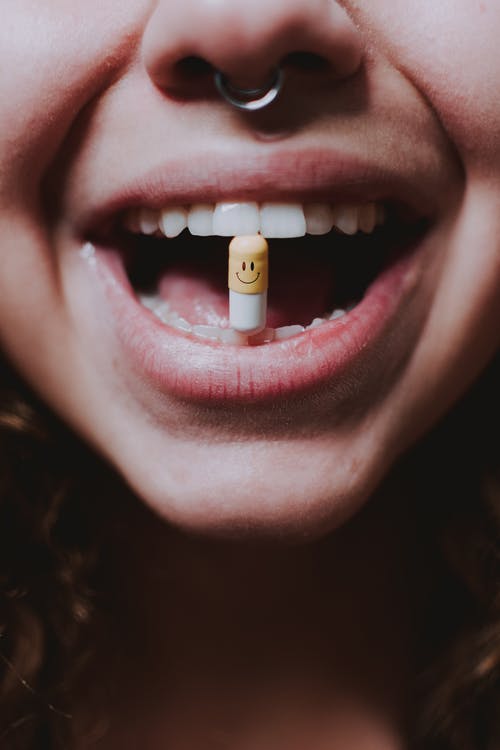
Become Great. Live Great.
Bonnie.
Reference
- Crum AJ, Corbin WR, Brownell KD, Salovey P. Mind over milkshakes: mindsets, not just nutrients, determine ghrelin response. Health Psychol. 2011 Jul;30(4):424-9; discussion 430-1.
- Crum AJ, Langer EJ. Mind-set matters: exercise and the placebo effect. Psychol Sci. 2007 Feb;18(2):165-71.
- Kirsch I. Antidepressants and the Placebo Effect. Z Psychol. 2014;222(3):128-134.
- Rabkin JG, Markowitz JS, Stewart J, McGrath P, Harrison W, Quitkin FM, Klein DF. How blind is blind? Assessment of patient and doctor medication guesses in a placebo-controlled trial of imipramine and phenelzine. Psychiatry Res. 1986 Sep; 19(1):75-86.
- Rutherford BR, Sneed JR, Roose SP. Does study design influence outcome?. The effects of placebo control and treatment duration in antidepressant trials.. Psychother Psychosom. 2009; 78(3):172-81.


